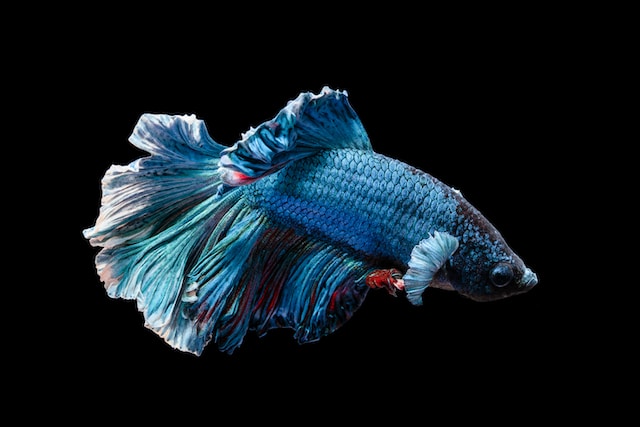Table of Contents
If you are a betta fish owner, you may be wondering how long your fish will be pregnant. Betta fish, also known as Siamese fighting fish, are known for their vibrant colors and aggressive behavior. They are also a popular choice for aquarium enthusiasts due to their hardy nature and ease of care. However, if you are planning on breeding betta fish, it is important to know how long the pregnancy lasts.
Betta fish are egg-layers, which means that the female will lay eggs and the male will fertilize them. Unlike mammals, betta fish do not have a gestation period. Instead, the female will carry the eggs in her body until they are ready to be laid.
The length of time that a female betta fish carries her eggs can vary, but it typically lasts between 10 and 14 days. During this time, the female may appear bloated and may spend more time hiding in plants or decorations in the aquarium.
Betta Fish Reproduction Cycle
Betta fish, also known as Siamese fighting fish, are egg-layers and have a unique reproductive cycle. In the wild, betta fish breed during the rainy season when the water level in their natural habitat rises. In captivity, betta fish can breed year-round, but it is important to understand their reproductive cycle to ensure successful breeding.
When a male and female betta fish are ready to breed, the male will build a bubble nest on the surface of the water using bubbles produced from his mouth. The female will lay her eggs in the nest, and the male will fertilize them. After the eggs are fertilized, the male will guard the nest and care for the eggs.
The gestation period for betta fish is around 24 to 36 hours. During this time, the eggs will develop and hatch into fry. The fry will stay in the bubble nest for another 24 to 36 hours until they are free-swimming and can leave the nest. It is important to remove the male from the tank once the fry are free-swimming to prevent him from eating them.
Pregnancy Duration
If you’re planning to breed betta fish, it’s essential to know their pregnancy duration. The pregnancy of betta fish, also known as spawning, can last anywhere from 24 to 48 hours. During this time, the female betta will release her eggs, and the male betta will fertilize them.
After the spawning process, the female betta will start to develop a noticeable bulge in her belly. This bulge is a sign that the eggs are developing inside her. The pregnancy duration of betta fish is relatively short, and the eggs will hatch within two to three days.
It’s important to note that betta fish are not like mammals, and they don’t carry their young inside their bodies for extended periods. Instead, they spawn externally, and the eggs develop outside the female’s body.
During the pregnancy duration, it’s crucial to provide the betta fish with a clean and safe environment. Make sure to keep the water temperature between 78-82°F and maintain the pH level between 6.5-7.5. You can also add some Indian almond leaves to the tank to create a natural environment for the betta fish.
Mating Process
When it comes to mating, betta fish are known for their aggressive behavior. The male betta fish builds a bubble nest on the surface of the water, and when he is ready to mate, he will begin to display his fins and flare his gills to attract a female.
Once the female betta is ready to mate, she will approach the male and they will begin a courtship dance. During this dance, the male will wrap his body around the female and release his sperm into the water. The female will then swim through the sperm cloud, allowing the eggs in her body to be fertilized.
After mating, the female betta fish will begin to develop eggs in her body. This process can take anywhere from a few days to a week. During this time, it is important to ensure that the female is well-fed and kept in a stress-free environment to ensure the health of the developing eggs.
Egg Laying and Fertilization
Betta fish are egg-layers and the female can lay hundreds of eggs at a time. The breeding process starts with the male and female betta fish swimming together in the same tank. The male will then start to build a bubble nest on the surface of the water using bubbles he creates with his mouth.
Once the bubble nest is complete, the male will start to court the female by flaring his fins and swimming around her. If the female is ready to mate, she will signal her readiness by displaying vertical stripes on her body. The male will then embrace the female and wrap his body around hers to release sperm and fertilize the eggs as they are released.
After fertilization, the eggs will fall into the bubble nest where the male will carefully guard and tend to them. It is important to remove the female from the tank after breeding to prevent her from eating the eggs or attacking the male.
The eggs will hatch in about 24 to 36 hours, and the fry will remain in the bubble nest for another 2 to 3 days until they are big enough to swim on their own. It is important to provide the fry with proper nutrition during this time to ensure their survival.
Egg Incubation Period
When breeding betta fish, it’s important to understand the egg incubation period. After the female betta lays her eggs, they will need to be incubated before they hatch. The incubation period for betta fish eggs typically lasts between 24 and 36 hours.
During this time, it’s important to keep the eggs in a warm and stable environment. A temperature of around 80 degrees Fahrenheit is ideal for incubating betta fish eggs. You can use a heater or a heat lamp to maintain the temperature in the breeding tank.
It’s also important to keep the water clean and well-oxygenated during the incubation period. You can use a sponge filter or an air stone to provide oxygen to the eggs.
Once the eggs hatch, the baby bettas (known as fry) will need to be fed small amounts of food several times a day. It’s important to continue to maintain a clean and stable environment for the fry to ensure their survival.
Post-Pregnancy Care
After your female betta fish has laid her eggs and the breeding process is complete, it’s important to take proper care of her to ensure her health and well-being.
Firstly, remove the female from the breeding tank and place her in a separate tank. This will prevent the male from bothering her and give her a chance to recover from the stress of breeding.
Make sure the tank is clean and well-maintained, with a heater to keep the water temperature consistent. Feed your female a nutritious diet of high-quality pellets or live food to help her regain her strength.
It’s also important to monitor the female for any signs of illness or infection, such as lethargy, loss of appetite, or unusual behavior. If you suspect that your female is sick, consult with a veterinarian who specializes in fish care.
In addition, keep a close eye on the breeding tank and the developing fry. Make sure the water quality is maintained at optimal levels and provide the fry with appropriate food and shelter.
By providing your female betta with proper post-pregnancy care, you can help ensure a healthy and successful breeding process.
Common Misconceptions
When it comes to betta fish pregnancy, there are several misconceptions that many people believe to be true. Here are a few of the most common misconceptions:
Misconception 1: Betta fish lay eggs
Contrary to popular belief, betta fish are not livebearers. They do not give birth to live young. Instead, they lay eggs that are fertilized by the male. After fertilization, the eggs will hatch in about 24 to 36 hours.
Misconception 2: Betta fish are pregnant for a long time
Betta fish pregnancy is actually quite short. After the eggs are laid, the female will carry them for about 24 to 48 hours before they hatch. This means that the entire pregnancy process, from fertilization to hatching, takes only a few days.
Misconception 3: Betta fish need a male to lay eggs
While it is true that a male betta fish is needed to fertilize the eggs, a female betta fish can still lay eggs even if there is no male present. However, these eggs will not be fertilized and will not hatch.
Misconception 4: Betta fish can only lay eggs once
Betta fish are capable of laying eggs multiple times throughout their lives. However, it is important to give the female betta fish time to rest and recover between spawnings. It is also important to note that breeding betta fish can be a complex and difficult process, and should only be attempted by experienced breeders.
By understanding these common misconceptions about betta fish pregnancy, you can better care for your betta fish and ensure their health and well-being.







